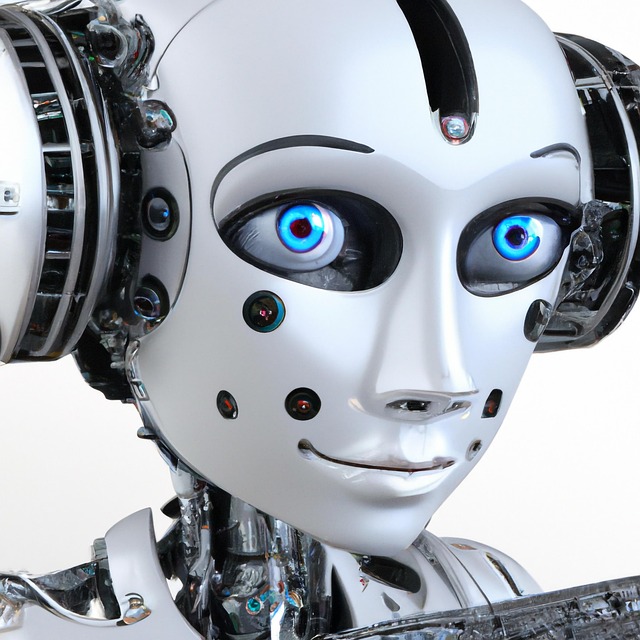Section 1: Introduction to AI Technology and its Impact on Industries
Artificial intelligence (AI) has been a buzzword for quite some time now, and with good reason. This revolutionary technology has the potential to transform industries and change the way we live and work. From self-driving cars to virtual personal assistants, AI has already made its way into our daily lives. But its impact is not limited to just consumer products. In fact, AI technology has the power to completely revolutionize industries, making them more efficient, productive, and profitable. In this article, we will explore the transformative power of AI technology and its impact on various industries.
Section 2: AI in Manufacturing and Production
The manufacturing and production industry is one of the earliest adopters of AI technology. With the help of AI-powered robots, factories can now automate repetitive and dangerous tasks, reducing the risk of human error and increasing efficiency. These robots can work 24/7 without breaks, resulting in higher production rates and lower costs. They can also be programmed to learn from their mistakes and continuously improve their performance, making them even more valuable to the manufacturing process.
Moreover, AI technology has also enabled predictive maintenance in the manufacturing industry. By analyzing data from sensors and machines, AI algorithms can predict when a machine is likely to fail, allowing for timely maintenance and preventing costly breakdowns. This not only saves time and money but also ensures a smooth and uninterrupted production process.
Section 3: AI in Healthcare
The healthcare industry is another sector that is being transformed by AI technology. From medical diagnosis to drug discovery, AI has the potential to revolutionize the way healthcare is delivered. With the help of machine learning algorithms, medical professionals can now analyze vast amounts of patient data and identify patterns that can aid in early diagnosis and treatment of diseases.
AI-powered robots are also being used in surgeries, allowing for more precise and minimally invasive procedures. This not only reduces the risk of human error but also shortens recovery time for patients. Moreover, AI technology is also being used to develop new drugs and treatments. By analyzing large datasets, AI algorithms can identify potential drug candidates and predict their effectiveness, saving time and resources in the drug development process.
Section 4: AI in Finance and Banking
The finance and banking industry is another sector that has been greatly impacted by AI technology. With the help of AI-powered chatbots, financial institutions can now provide 24/7 customer service, answering queries and resolving issues in real-time. These chatbots are also equipped with Natural Language Processing (NLP) capabilities, allowing them to understand and respond to human language, making customer interactions more efficient and personalized.
Moreover, AI technology is also being used in fraud detection and prevention. By analyzing large amounts of data, AI algorithms can identify patterns and anomalies that may indicate fraudulent activities. This not only helps in preventing financial losses but also ensures the security of customer data.
Section 5: AI in Transportation and Logistics
The transportation and logistics industry is another sector that is benefiting greatly from AI technology. With the help of self-driving vehicles, the transportation of goods and people has become more efficient and safe. These vehicles are equipped with sensors and cameras that allow them to navigate through traffic and avoid accidents. This not only reduces the risk of human error but also saves time and resources.
Moreover, AI technology is also being used in route optimization, allowing for more efficient and cost-effective transportation. By analyzing data such as traffic patterns and weather conditions, AI algorithms can determine the most optimal route for delivery, reducing delivery times and costs.
Section 6: The Future of AI Technology and its Impact on Industries
The potential of AI technology is limitless, and its impact on industries will only continue to grow in the future. With advancements in machine learning and deep learning, AI algorithms will become more sophisticated and capable of handling complex tasks. This will result in even more efficient and productive industries, leading to economic growth and development.
However, with this growth comes the concern of job displacement. As AI technology continues to automate tasks, the need for human labor may decrease, leading to job losses. It is important for industries to prepare for this shift and invest in retraining and upskilling their workforce to adapt to the changing job market.
Conclusion
In conclusion, AI technology has already made a significant impact on industries, and its potential for transformation is immense. From manufacturing to healthcare, finance to transportation, AI has the power to make industries more efficient, productive, and profitable. As we continue to embrace this technology, it is important to also address the challenges and ensure a smooth transition for all stakeholders. With the right approach, AI technology has the potential to bring about a revolutionary change in industries, leading to a better and more advanced future.

